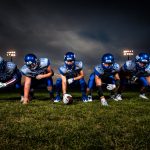The importance of sleep should not be underestimated, especially if you’re someone who looks to maintain an elite level of athleticism, endurance, and conditioning. While proper nutrition coupled with a consistent training regimen are key drivers that allow your fitness to stay at a high level, studies and fitness professionals have detailed how quality sleep should not be overlooked.
In a 2012 study, Sleep researcher W. Christopher Winter, M.D. notes how lack of sleep can affect the early stages of an athlete’s professional career, specifically with college football players. The research-study revealed that among 55 randomly selected college players who were able to get drafted by a team from the National Football League (NFL), athletes who were running low on quality sleep only had a 38% chance of making the team’s final roster. Such studies have brought to light the importance of sleep for athletes especially those who want to make that leap to become professional. Since then, more and more NFL teams evaluate a prospective recruit’s sleeping habits just as importantly as they would examine his on-the-field skill set and fitness levels.
As there is a clear link between career longevity and lack of sleep, more and more medical specialists are helping professional athletes see the significance of sleep in their lives. According to Charles Czeisler, who has become known in the professional sports circles as the “Sleep Doctor”, athletes who don’t put a premium of on their sleeping habits, ultimately become counterproductive and less capable of doing their job. “Asking athletes to play on minimal sleep is the same as asking them to “play with one hand tied behind their back,” he says. “It’s making them do something we know degrades their reaction time, their ability to take in their training, to get the most benefit out of it. They spend all this time practicing but never get to sleep.”
In the article, Czeisler even stresses that if athletes aren’t able to get quality sleep after their training day, they are at a disadvantage as the body needs immediate rest after hours of strenuous activity. He goes on and stresses that sleep, more than training at the times, should be emphasized in a team’s culture, especially for championship-caliber organizations that have their sights set on taking home their respective sports’ top prize. Through getting the right amount of sleep, athletes not only allow their bodies to heal, but they are able to feel revitalized from a mental and emotional perspective.
Between traveling from one city to another for their games day, attending social functions, and grueling training days, athletes may find it hard to keep to a good sleeping pattern. For athletes, and those with a busy schedule, napping for 20-30 minutes has been shown to be an effective method to rejuvenate the body. In a Leesa blog post, Fitness expert and the national spokesperson for the Academy of Nutrition and Dietetic Jim White advises that taking a 20 to 30-minute power nap during a day can be helpful to regain that cognitive edge and recharge those energy levels. White famously told GQ that if a client has an extra 30 minutes to spend on sleep or exercise, they should always choose sleep.
The American Psychological Association notes that at least 40 million Americans are dealing with more than 70 various type of sleep disorders of which 60% of adults are having sleep problems on more than a weekly basis. While sleep is imperative for an athlete’s performance, everyone should be conscious of getting the right amount of rest, as sleep is crucial to the well being and wellness of every individual.

+ show Comments
- Hide Comments
add a comment